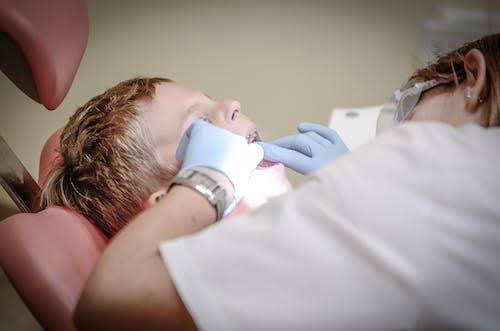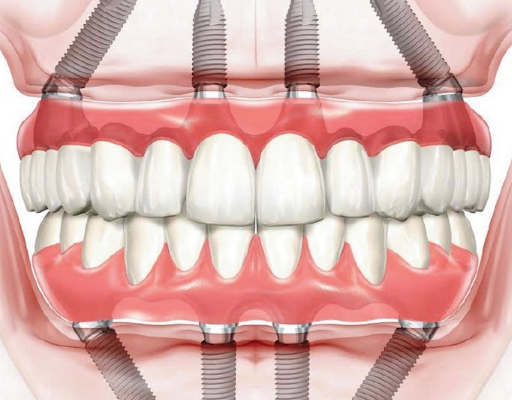Welcome to our essential guide on cavity prevention, tailored for the lively community of Clayton! Here, where life is as much about enjoying local flavors as it is about maintaining a healthy lifestyle, dental health plays a pivotal role. We’re thrilled to present a set of effective and straightforward strategies to help you keep cavities at a minimum. Whether you’re fine-tuning your dental routine or seeking expert advice for enduring oral health, this guide has something for everyone in Clayton. Dive into our comprehensive resource to discover the causes of cavities and the best dental care practices, ensuring you keep that radiant, cavity-free smile.
- Understanding Cavities: What Causes Them?
Cavities, also known as dental caries, are small holes in the teeth caused by tooth decay. They occur when the enamel, the hard outer layer of your teeth, gets damaged. This damage often results from a combination of factors like germs in your mouth, frequent snacking, sipping sugary drinks, and not cleaning your teeth well. When bacteria break down these sugars, they produce acidic chemicals that erode the enamel, leading to cavities. It’s not just about avoiding sweets; understanding the role of bacteria and maintaining good oral hygiene is key to preventing cavity formation.
- Choosing the Right Toothpaste and Toothbrush
Selecting the appropriate toothpaste and toothbrush is the foundation of effective dental care. A toothpaste rich in fluoride is crucial, as fluoride not only helps prevent tooth decay but also can reverse early signs of cavities. For those with specific dental needs, such as individuals with braces, please search for a local professional, like Clayton orthodontist near me who can provide recommendations for specialized toothpaste that caters to these unique requirements. When it comes to toothbrushes, a soft-bristled one is recommended to protect your gums and enamel. Ensure that the toothbrush’s size and shape comfortably fit your mouth, facilitating easy access to all areas. Additionally, electric toothbrushes are an excellent choice for more efficient plaque removal.
- The Importance of Regular Brushing and Flossing
Brushing and flossing regularly are the cornerstones of dental health. Brush your teeth at least twice a day for two minutes each time. Use gentle, circular motions to clean all surfaces of your teeth. Flossing once a day is equally important; it removes food particles and plaque between teeth that a toothbrush can’t reach. Remember, it’s not just about frequency; technique matters too. Incorrect brushing or flossing can leave plaque behind, which can lead to cavities.
- The Role of Diet in Dental Health
Your diet plays a significant role in your dental health. Foods high in sugars and carbohydrates feed the bacteria that cause tooth decay. To prevent cavities, limit sugary snacks and drinks and Choose healthier options such as fruits, vegetables, and cheese, which can help balance the pH level in your mouth. Also, drinking ample of water, especially fluoridated water, helps rinse away food particles and keeps your mouth hydrated, reducing the risk of cavities.
- Fluoride: A Key Ingredient for Strong Teeth
Fluoride is a cavity fighter and a crucial ingredient for maintaining strong teeth. It’s found in most toothpaste and is added to many public water supplies. Fluoride helps by rebuilding (demineralizing) weakened tooth enamel and reversing early signs of tooth decay. When choosing dental care products, ensure they contain fluoride to maximize cavity prevention. In areas where water is not fluoridated, dental professionals may recommend fluoride supplements or treatments.
- Professional Dental Cleanings and Check-Ups
Regular visits to the dentist are crucial in the fight against cavities. Professional cleanings remove plaque and tartar that can’t be brushed or flossed away. During check-ups, your dentist can spot early signs of decay and address them before they worsen. These visits are also great opportunities to get personalized advice on improving your dental routine. Most experts recommend a dental check-up every six months, but your dentist might suggest a different schedule based on your individual needs.
- Sealants and Other Preventative Treatments
Dental sealants are another powerful tool in cavity prevention. They are thin, protective coatings applied to the chewing surfaces of back teeth, where cavities often form. Sealants can significantly reduce the risk of decay in molars, especially for children and teenagers. Your dentist can also apply other preventive treatments like fluoride varnishes. These treatments add an extra layer of protection against cavities and are particularly helpful for people with a high risk of dental decay.
- The Impact of Lifestyle Choices on Oral Health
Your lifestyle choices can have a significant impact on your oral health. Smoking and excessive alcohol consumption, for instance, can increase the risk of tooth decay and gum disease. A balanced diet, rich in vitamins and minerals, supports healthy teeth and gums. Reducing stress is also important as it can lead to habits like teeth grinding, which wears down enamel. Embracing a healthy lifestyle not only benefits your oral health but also contributes to your overall well-being.
- Addressing Early Signs of Cavities
Recognizing and addressing the early signs of cavities can save you from more extensive dental work down the line. Be aware of tooth sensitivity, pain when biting, visible pits, and tooth surface stains. If you notice any of these signs, don’t wait for your next scheduled dental visit; make an appointment immediately. Early treatment can often stop decay in its tracks and save the tooth.
- Myths and Facts About Cavities
There are many myths surrounding cavities and dental health. For example, some believe sugar is the only cause of cavities, but acidic foods and carbohydrates can also contribute to tooth decay. Another common myth is that cavities in baby teeth don’t matter, but decay in baby teeth can affect the health of the permanent teeth developing beneath them. Educate yourself about these myths and facts to better understand how to protect your teeth and prevent cavities.
Conclusion
Preventing cavities is an ongoing process that combines daily care with regular professional dental check-ups. Understanding the causes of cavities, choosing the right dental care tools, maintaining a good diet, and being aware of the effects of lifestyle choices on oral health are all crucial steps. Addressing early signs of decay and debunking common myths will further arm you against cavities. Remember, taking care of your teeth is not just about avoiding decay; it’s about maintaining a healthy, confident smile. Embrace these tips and make them a part of your routine for long-lasting oral health. Your smile is worth it!
I am a 26 year old young and witty girl, who simply loves to write and be around her friends. I am the one who believes in filling the heart of her readers with love, passion and contentment.





